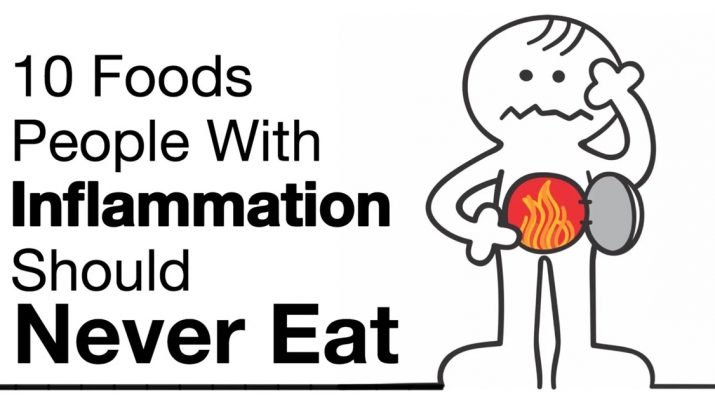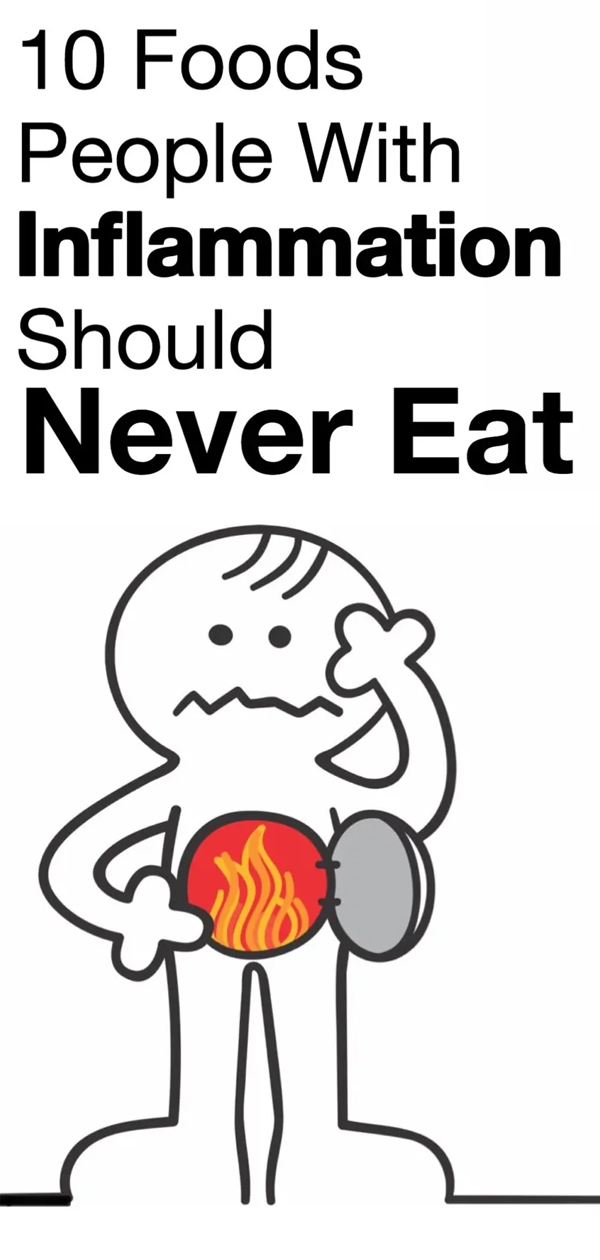As we’ve repeatedly discussed, inflammation is not a bad thing; without an inflammatory response, healing from even the least-threatening wounds would not be possible.
Chronic (long-term) inflammation is not a good thing, however. Monsour Mohamadzadeh, Ph.D., and director of the Center for Inflammation and Mucosal Immunology at the University of Florida explains the difference:
“In a healthy situation, inflammation serves as a good friend to our body. But if immune cells start to overreact, that inflammation can be totally directed against us.”
Although the title of this article – and some of its contents – focuses on those with inflammatory diseases, the vast majority of information contained within applies to us all. With that in mind, we’re going to discuss foods to avoid to keep inflammation levels in check.
The Role of Food
Everything that we eat has an effect on the body. During digestion, food is broken down into its basic elements, most notably carbohydrates, fats, and protein. Vitamins and minerals contained in food are absorbed – as are unhealthy fats, refined carbohydrates, and other non-desirables.
Put simply, what food enters our mouths determines how our body functions. In this regard, the levels of inflammation are no different.
With This In Mind, Here Are The Ten Foods To Avoid:
1. Sugar/High-Fructose Corn Syrup
Surprise, surprise.
Sugar is perhaps the unhealthiest food (or ingredient) in existence. Consider this: just until very recently, scientists thought that obesity was the primary cause of diabetes. However, new research shows that sugar has a strong contributory effect on diabetes – beyond the simply caloric properties as it was once thought.
2. Refined Carbs
Researchers believe that the refined carbohydrates – adulterated and without their natural fiber – in modern diets stimulate the growth of inflammatory gut bacteria. This increases the risk of both cardiovascular disease and obesity.
While fiber promotes feelings of fullness and is beneficial for overall health, refined carbs cause cravings and boost inflammation levels.
3. Alcohol (In Excess)
While moderate alcohol consumption provides some health benefits, higher amounts can lead to severe problems. One such problem is “leaky gut”: an influx of bad bacteria transferred from the colon to the body. This condition can drive widespread inflammation – and may even lead to organ damage.
4. Processed Meat
Processed meat is linked to an increased risk of diabetes, colon cancer, heart disease, and stomach cancer. Compounds called advanced glycation end products (AGEs) are abundant in processed meat; and are known to stimulate an elevated inflammatory response.
5. Artificial Trans Fats
Trans fats are one of the unhealthiest foods you can eat. On food labels, trans fats are shown as “partially hydrogenated” oils. Regardless of what’s on the label, artificial trans fats are connected to inflammatory disease and a higher risk of cancer.
6. Refined Grains
Just FYI: whenever you see the word refined on a food label, it’s never a good thing. Case in point is “refined” grains – in which the “refinement” process removes all of the healthy stuff, like the bran and germs. Foods like noodles, pasta (not whole grain), pastries, and white flour cause a spike in blood sugar, which stimulates the inflammatory response.
7. Monosodium Glutamate (Msg)
MSG is known to trigger inflammation, particularly in those with arthritis. MSG consumption is associated with heart palpitations, muscle weakness, and numbness. Along with another artificial additive, aspartame, MSG may lead to inflammation of the liver.
8. Gluten
Gut inflammation is triggered by irritants contained in wheat proteins such as gluten. Scientific literature shows a correlation between wheat proteins and certain inflammatory conditions, such as celiac disease. Foods that often contain gluten include bread, cakes candies, pasta, and pastries.
9. High-Fat Or High-Sugar Dairy
Unreliable information is abundant supposedly “proving” a relationship between dairy products and inflammation. In a 52-study review published in the journal Critical Reviews in Food Science and Nutrition, some dairy is shown to have anti-inflammatory benefits.
The same can not be said of dairy’s high-fat and sugar-laden counterparts, however.
10. Some Oils
Oils that are rich in some omega-6 fatty acids – notably corn, soybean, and safflower oil – increase inflammation markers. A good rule of thumb to remember: omega-3 is good, and omega-6 is bad – at least inflammation-wise. FYI: Olive oil is wonderful for warding off inflammation (please see the list below.)
Anti-Inflammatory Foods
Per Harvard Medical school, here are some of the healthiest foods to chow down on if you want to lower your inflammation.
– Fruits: Blueberries, cherries, oranges, strawberries, and tomatoes.
– Fatty fish: mackerel, salmon, sardines, and tuna.
– Leafy greens: collards, kale, spinach, and more.
– Nuts: almonds, walnuts.
– Olive oil


